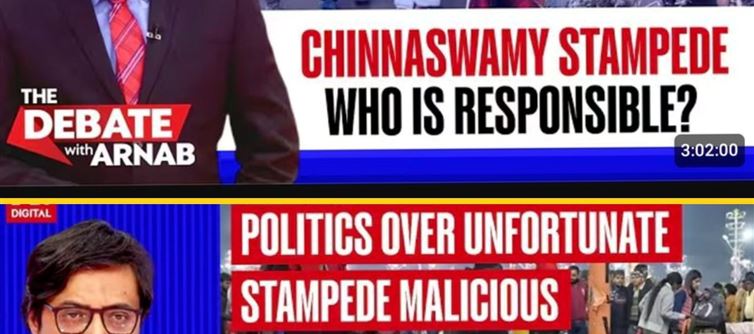
This perceived hypocrisy has not gone unnoticed by the public. social media platforms are ablaze with criticism, accusing Arnab of being a mouthpiece for the bjp while vilifying opposition-ruled states and figures. The fact that a celebrity like virat kohli, who has little to do with event logistics or governance, was dragged into the controversy, further highlights the sensationalism often associated with Goswami's brand of journalism. Critics argue that such coverage prioritizes drama over facts and accountability, turning serious issues into tools for political mudslinging rather than informed public discourse.
More broadly, Arnab’s selective outrage is being viewed as a symptom of the broader decay in journalistic ethics within mainstream indian media. His prime-time shows, often loud and confrontational, are increasingly being seen as political theatre designed to sway public opinion rather than inform it. In doing so, he contributes to the erosion of trust in media institutions, where bias and allegiance replace neutrality and responsibility. The trolling and shaming online reflect a growing public disillusionment with media figures who are perceived to serve political interests over journalistic integrity.




 click and follow Indiaherald WhatsApp channel
click and follow Indiaherald WhatsApp channel